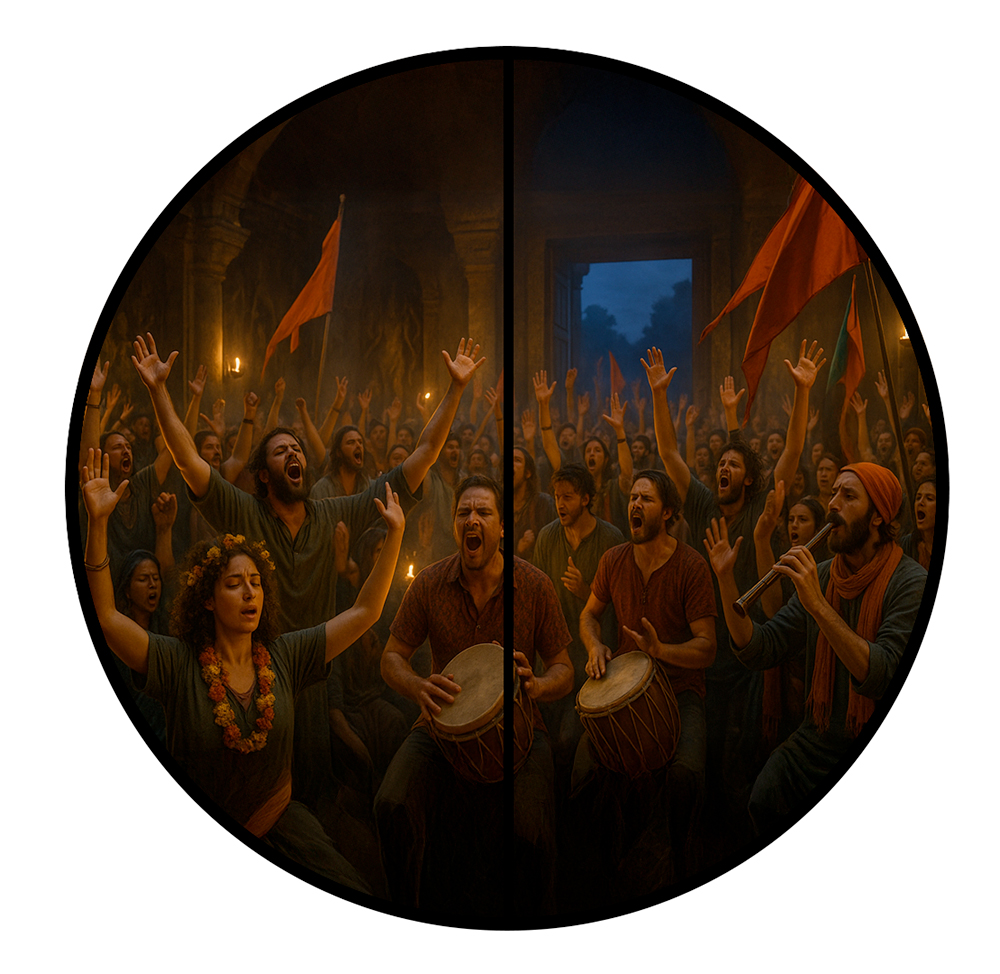 1Corinthians 13:1
1Corinthians 13:1

|
Strongs 1437
[list] Λογεῖον Perseus Ean Ἐὰν If Conj |
|
Strongs 3588
[list] Λογεῖον Perseus tais ταῖς the Art-DFP |
|
Strongs 1100
[list] Λογεῖον Perseus glōssais γλώσσαις tongues N-DFP |
|
Strongs 3588
[list] Λογεῖον Perseus tōn τῶν the Art-GMP |
|
Strongs 444
[list] Λογεῖον Perseus anthrōpōn ἀνθρώπων men N-GMP |
|
Strongs 2980
[list] Λογεῖον Perseus lalō λαλῶ I chatter V-PSA-1S |
|
Strongs 2532
[list] Λογεῖον Perseus kai καὶ and Conj |
|
Strongs 3588
[list] Λογεῖον Perseus tōn τῶν the Art-GMP |
|
Strongs 32
[list] Λογεῖον Perseus angelōn ἀγγέλων angels N-GMP |
|
Strongs 26
[list] Λογεῖον Perseus agapēn ἀγάπην agape-love N-AFS |
|
Strongs 1161
[list] Λογεῖον Perseus de δὲ and Conj |
|
Strongs 3361
[list] Λογεῖον Perseus mē μὴ not Adv |
|
Strongs 2192
[list] Λογεῖον Perseus echō ἔχω I am holding V-PSA-1S |
|
Strongs 1096
[list] Λογεῖον Perseus gegona γέγονα have I become V-RIA-1S |
|
Strongs 5475
[list] Λογεῖον Perseus chalkos χαλκὸς a brass N-NMS |
|
Strongs 2278
[list] Λογεῖον Perseus ēchōn ἠχῶν he who is sounding V-PPA-NMS |
|
Strongs 2228
[list] Λογεῖον Perseus ē ἢ or Conj |
|
Strongs 2950
[list] Λογεῖον Perseus kymbalon κύμβαλον a cymbal N-NNS |
|
Strongs 214
[list] Λογεῖον Perseus alalazon ἀλαλάζον that which is clanging V-PPA-NNS |
ἀλαλή ≈ alalē alalay!
If I am chirping/chattering in the Tongues of the Men and of the Angels, but I am not holding an agape-love, I have become a bronze, he who is ringing, or a cymbal which is raising orgiastic war-cries.
ἀλαλάζω - raising war cries, shouts, cries of victory
"esp. in orgiastic rites"" (cf. LSJ)
Orgastic rites (from Greek ὀργια / orgia) denote secret, often ecstatic or frenzied religious rituals, typically associated with mystery cults such as those of Dionysus (Bacchus).
In these rites, participants would produce loud cries, shouts, or screams as part of their ritual expressions of ecstatic worship and possession.
The verb ἀλαλάζω, meaning “to shout loudly” or “raise a war-cry,” is especially attested in such contexts, emphasizing the intense, vociferous character of the ceremonies.
For example, Euripides’ Bacchae uses ἀλαλάζω to describe the wild cries of Bacchic followers (e.g., Eur. Bacch. 593), reflecting the ritualistic shouting or ululation (alalalalalilililililili) typical of these rites.
If I speak with the tongues of men and of angels, and have not love, I have been the brass of echoes, and the shouting cymbal.
None
If I speak in the tongues of men and of angels, but have not love, I am a noisy gong or a clanging cymbal.